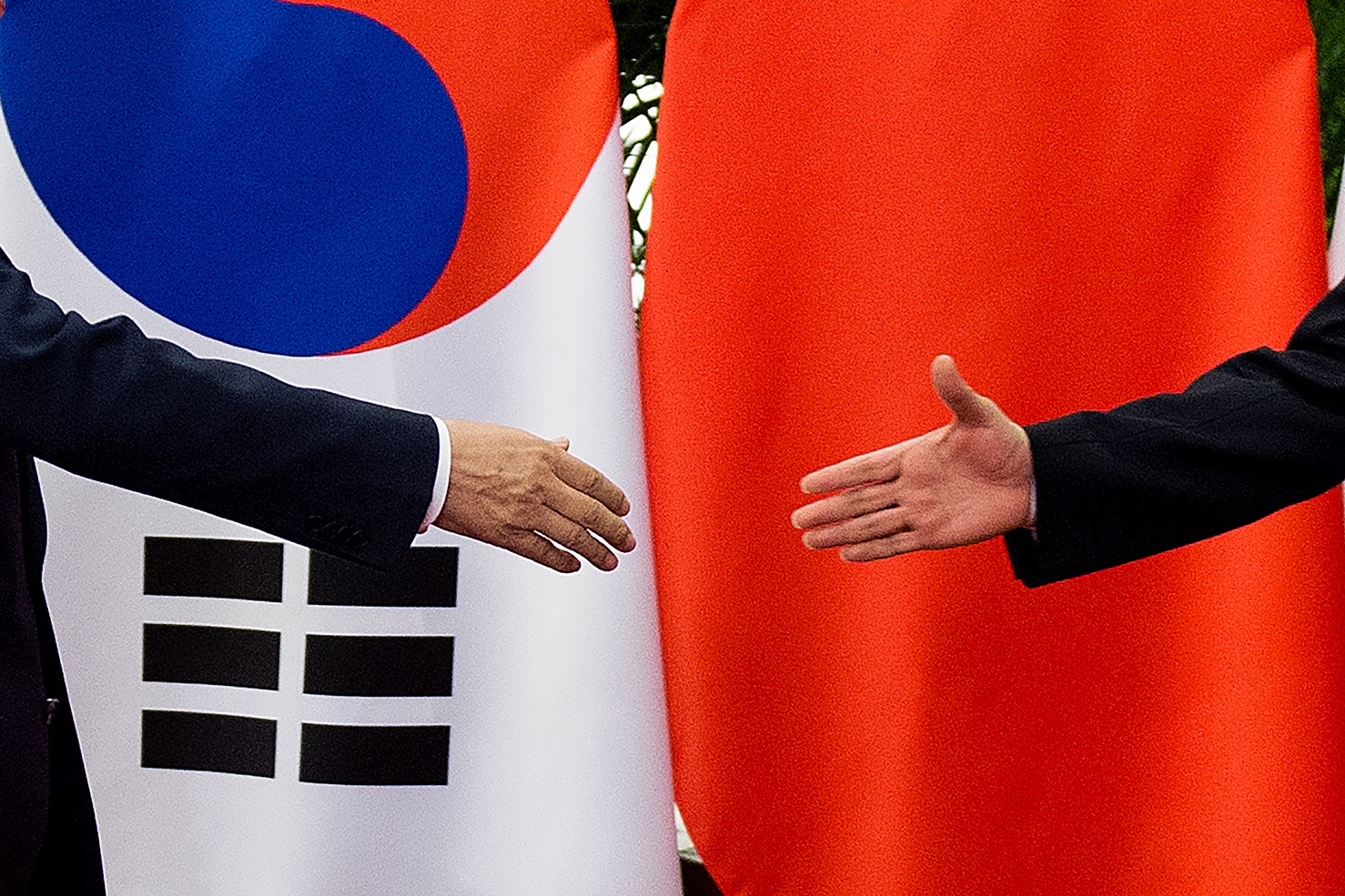The International Press Institute (IPI) today condemned the physical assault of two South Korean journalists in China and urged the Chinese government to clarify the incident and hold those responsible to account.
Thursday’s incident occurred as South Korean President Moon Jae-in toured a trade fair in Beijing as part of his four-day state visit to China. According to reports, members of President Moon Jae-in’s press pool were attempting to cover the tour when they were intercepted and prevented from following the president by Chinese security guards.
As the South Korean journalists complained about the move, guards grabbed one of them, photographer Koh Young-kwon of the daily Hankook Ilbo, by the collar and shoved him to the ground.
After initially being allowed to proceed further, the press pool journalists were then blocked again by a group of Chinese guards. Amid renewed protests, guards surrounded one of the journalists, Maeil Business News photojournalist Lee Chung-woo, and began to beat him. After throwing Lee to the floor, the guards continued to kick him in face, causing a fractured eye socket.
Korean government officials tried to intervene and stop the beating, but were reportedly unable to do so.
Lee was later taken to the hospital.
IPI Deputy Director Scott Griffen said China had a responsibility to protect the safety of all journalists ― domestic and foreign ― working within its borders.
“Violence against journalists is never acceptable. We strongly condemn this incident, which also reveals a troubling lack of understanding of journalists’ right to cover the actions of public officials. The Chinese authorities must clarify the facts and ensure that those responsible for these acts of assault are held accountable.”
There have, indeed, been conflicting accounts of the guards’ identity. Some reports have nevertheless suggested that even if the guards had been recruited by the South Korean organisers of the trade fair, they remained under the authority of Chinese police.
President Moon Jae-in’s visit came amid heightened tension between China and South Korea after the latter’s decision to cooperate with the United States on a missile-defence system known by the acronym THAAD. South Korea has said the system, which China views as a security threat to itself, is intended solely to protect against North Korean missiles.
